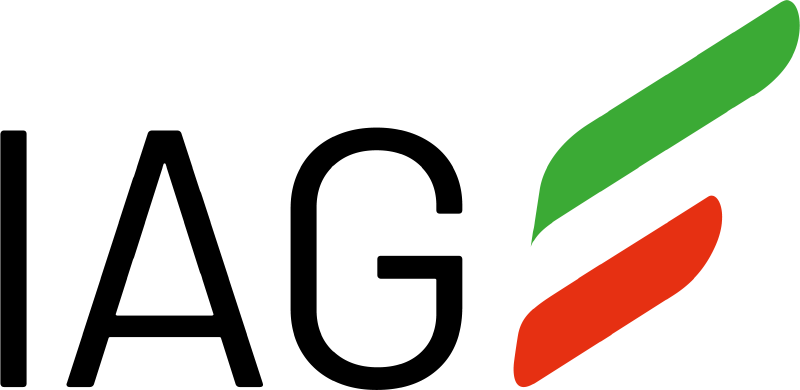In IAG since 2022, she has in-depth knowledge of the recruiting industry, B2B and B2C e-commerce, second-hand economy, sharing mobility, beauty industry, home care, and small and medium-sized businesses. Companies she has worked for include eBay, Jobrapido, Treatwell, Ubeeqo, Subito.it, and InfoJobs. Get to know her better.
Can you tell us about your professional experience and how you approached the startup world?
In the first years after university, I worked for a consulting firm and oversaw the project of the first online supermarket in Italy - for those with historical memory, what later became volendo.com. From there, I discovered a strong interest in digital technologies, and it was this passion of mine that led me toward the startups that were being born in the digital world right in the late 1990s. In 2000, I met on my way eBay, which was being launched in Italy, and I got on that train, seeing the company, over the next 8 years, go from a rented room with 5 chairs around a big desk, to an organized team with hundreds of people, from a completely new online marketplace project, to an interface known and used by thousands of individuals and small businesses on a daily basis.
Hit and miss: the energy I breathed into eBay, and the satisfaction of creating something new, made me so enamored that I continued in this vein, joining other startups, eventually launching in the years that followed, some directly myself.
The lowest common denominator among all the experiences you've had is about your going into the business the moment it is born. What advice, also as a business angel, would you give to those who choose to start a business?
In my experience, obviously given the prerequisite of a business idea in a large market that solves a problem for the target audience it is aimed at, there are three main characteristics that are needed in a startup, specifically:
- Methodology: key is the definition and sharing of short-, medium-, and long-term goals. This is often underestimated, and founders rely on the implicit transmission of information, relying on the initial limited number of people involved. As soon as people increase, however, without a method of working and sharing, confusion and demotivation soon arise. I have often successfully used the OKR methodology, which is typical of many digital companies, so I gladly recommend it to the startups I follow, but any method is fine, if it gives the founders and the team a way to move forward aligned toward the common goal.
The founders and the team: the choice of people is critical in a startup. You need people with complementary skills and abilities, not necessarily the gurus in the field, but who are willing to roll up their sleeves and make things happen and who believe in the project and its vision.
Relationship with investors: investors are important and can help the development of the startup, but it must be shared in what areas and with what methodology (no far west). For example, investors can refer qualified business contacts via shared files, where they can refer for contact status updates.
According to data from Bloomberg's 2022 Gender-Equality Index, on average, GEI member boards are made up of 31 percent women, and 72 percent of member companies have a Chief Diversity Officer or executive with primary responsibility for diversity and inclusion. How important is the value that diversity brings to business and what challenges and opportunities does the world of work hold for women?
Unfortunately, companies on this point still have a lot to do, as the numbers tell us, in Italy more than in other countries. I have been privileged in this respect, because, working often in international contexts, I have had the opportunity to deal with Boards with diverse backgrounds and experiences and who appreciate diversity. Despite this, I have rarely had "women leaders," and this is because, despite their presence on Boards, women are still rarely the No. 1. This is a missed opportunity, in my opinion, for many companies, because women, like men, can be professionally valuable. I don't see big differences in female or male characteristics, but I believe that the right person, whether woman or man, can make a difference and all the more be helped by a Board and a set of collaborators that are as complementary as possible. Diversity is a value precisely because different people are complementary and bring different experiences, ways of thinking, and ideas that are good for business.
You are also close to the topic of sustainability. European startups are playing an important role in shaping a new kind of sustainable development, in line with the United Nations 2030 agenda. What does sustainable growth mean and how do you also help startups take on these major challenges?
Sustainable growth is economic, social, and ecological development defined according to the needs of present generations without, however, compromising the development of future generations. It is a necessary balance to be struck to ensure a peaceful society co-inhabiting our planet.
Startups can play an important role in achieving the 17 goals of the United Nations 2030 Agenda, aimed precisely at achieving sustainable development. And it is important to support and sustain them in this effort, mainly in two ways:
- raising awareness and training them on sustainability issues, inciting them not only to be sustainable, but also to turn their own innovations to sustainability, working on the very challenges of the 2030 Agenda. Awareness raising and training is also a responsibility of us business angels!
- with regulations and financial incentives from governments that can promote sustainable development and bringing startups closer to the issue.
It is not an easy challenge, but I believe that startups, more than other actors can really play an innovative and important role in making sure that we achieve the sustainable development goals.








